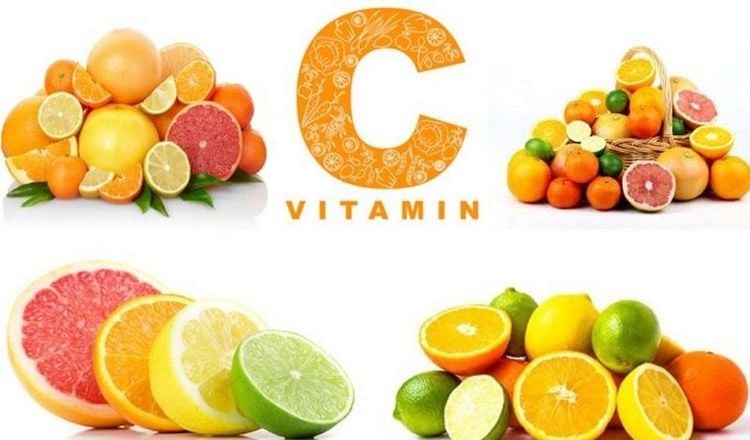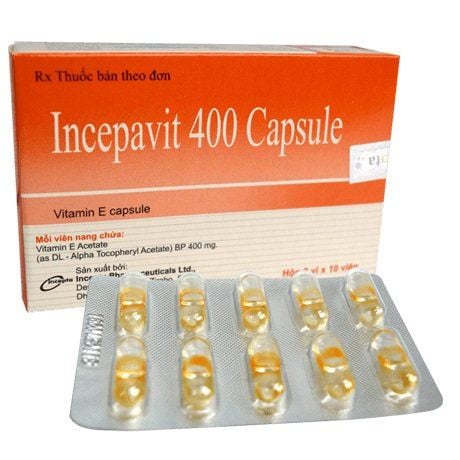This is an automatically translated article.
Lemon is a round fruit, usually bright green, sour and succulent. This fruit is an extremely powerful source of vitamins, especially containing high levels of vitamin C, antioxidants and other nutrients. Lemons include many types, such as tamarind, seedless lemon, Thai lemon, and paper lemon. Each of these lemons has its own unique characteristics, for example, tamarind is smaller and more acidic than seedless lemons.
1. Nutritional value in lemon
Although lemons are a small fruit, they are very rich in nutrients, especially vitamin C. A medium-sized lemon of about 67 grams contains:
Calories: 20 Starch: 7 grams Protein 0.5 grams Fat: 0.1grams Fiber: 1.9grams Vitamin C: 22% of the Recommended Daily Intake (RDI) Iron: 2% RDI Calcium: 2% RDI Vitamin B6 : 2% RDI Thiamine: 2% RDI Potassium: 1% RDI
2. Health benefits
As a nutrient-dense food source, lemons can help boost the body's immunity, reduce heart disease risk factors, prevent kidney stones, aid in iron absorption, and promote healthy skin.

Chanh giúp thúc đẩy làn da khỏe mạnh
2.1 Sources of Antioxidants Antioxidants are compounds that are important in protecting cells against free radical molecules. When present in large quantities, free radicals can damage cells in the body, putting them at risk for chronic diseases like heart disease, diabetes, and many types of cancer.
Lemons have many active compounds that function as antioxidants in the body, including flavonoids, limonoids, kaempferol, quercetin, and ascorbic acid.
2.2 Boosts Immune System Lemons are high in vitamin C, a nutrient that can help boost your immune system. In test-tube studies, vitamin C has been shown to increase the production of white blood cells, which help protect the body against infection and disease. Furthermore, in some human studies, taking vitamin C has been shown to shorten the duration and severity of the common cold. In addition, vitamin C can help wounds heal faster by reducing inflammation and stimulating the production of collagen, an essential protein that aids in wound repair. Besides vitamin C, lemons are also a source of antioxidants that boost the immune system by protecting cells against free radical damage.
2.3 Improves Skin Health Lemons have a number of properties that may promote healthy skin.
This fruit has a high content of vitamin C, which is necessary for collagen regeneration in the body. Collagen is a protein that keeps skin firm and healthy. A medium-sized lemon weighing about 67 grams provides more than 20% of the RDI for this nutrient.
A study of over 4,000 women found that those who ate more vitamin C had a lower risk of wrinkles and dry skin during the aging process.

Chanh rất giàu vitamin C
2.4 Reduce Heart Disease Rates Heart disease is the leading cause of death worldwide. Research shows that lemons can reduce several heart disease risk factors. Lemons are high in vitamin C, which can help lower blood pressure, a major risk factor for heart disease Clogged arteries cause heart disease. One animal study showed that giving rabbits lemon zest and lemon juice slowed the progression of atherosclerosis in them.
2.5 Preventing Kidney Stones Kidney stones are small, often painful buildup of mineral crystals that persist in the body. They can form inside the kidneys when the urine quality is too thick or when the body has high levels of stone-forming minerals, such as calcium.
Citrus fruits like lemons are high in citric acid, which can prevent kidney stones by increasing citrate levels and removing stone-forming minerals in the urine. One study found that people who ate a lot of citrus fruits had a significantly lower risk of kidney stones.

Chanh giúp ngăn ngừa sỏi thận
2.6 Boosts Iron Absorption Iron is an essential nutrient for making red blood cells and transporting oxygen throughout your body. Low blood iron levels can cause anemia. Signs of iron deficiency anemia include fatigue, shortness of breath during exercise, paleness, dry skin, and hair loss.
Vegetarians or vegans are at a higher risk of iron deficiency, as plant-based products contain a less absorbed form of iron than sources of iron from animal products. Foods rich in vitamin C, like lemons, can help prevent iron-deficiency anemia by improving the absorption of iron from plant-based foods. One study in vegetarians showed that drinking a 250ml glass of lemon juice with a meal increased the absorption of plant iron.
2.7 Reduce Cancer Rate Cancer is a dangerous disease, caused by abnormal growth of certain cells. Citrus fruits like citrus fruits have compounds that are thought to reduce the risk of cancer. For example, flavonoids - which act as antioxidants - can help prevent the occurrence of cancer-causing gene mutations.

Chanh giúp giảm nguy cơ mắc các bệnh ung thư
Furthermore, test-tube studies show that citrus fruits can prevent the growth or spread of tumors of the colon, throat, pancreas, breast, bone marrow, and other tissues. other cancer cells
3. How to use lemon
There are countless ways to use lemon in everyday life. Lemons are appreciated for the natural water content in the fruit as well as the aroma of the essential oils in this fruit. That's one reason why lemons are considered a staple ingredient in Southeast Asian and Mexican cuisine.
In other parts of the world - like India - lemons are often pickled to increase shelf life and then added to dishes to enhance flavor. Lemon zest and lemon juice are common ingredients in desserts and baked goods, such as pies, cookies, and ice cream. Citrus fruits are often used in savory dishes or to add flavor to alcoholic and non-alcoholic beverages.
Outside of kitchen use as a cooking ingredient, lemon is used as a natural cleaner and to neutralize odors. Some studies show that they have high antibacterial properties. Lemon juice can be mixed with vinegar and water to use as an all-natural, chemical-free cleaning solution.
Lemons are common, sold in all stores and superfoods - often found in the same area as other fruits.

Chanh được biến tấu sử dụng rất đa dạng với nhiều mục đích khác nhau
4. Some Downsides
In most cases, lemon is a safe fruit to use. There are few or almost no noticeable side effects.
However, for people who are allergic to other citrus fruits, lemons should be avoided as they can cause food allergy symptoms, such as swelling, hives, and difficulty breathing. If this occurs, the user should seek medical help.
In addition, some people may experience acid reflux from eating lemons or drinking lemon juice due to the high acidity of this fruit. Other digestive upset symptoms may include heartburn, nausea, vomiting, and difficulty swallowing. Therefore, consuming too much lemon can increase the risk of tooth decay, as the acid in lemons and other citrus fruits can erode tooth enamel. Gargling with plain water after eating lemons or drinking lemon water is an effective measure to prevent these effects.
In other cases, applying lemon directly to the skin can make the surface of the skin more sensitive to the sun's UV rays and cause inflammation.
Please dial HOTLINE for more information or register for an appointment HERE. Download MyVinmec app to make appointments faster and to manage your bookings easily.
Reference article: Healthline.com












